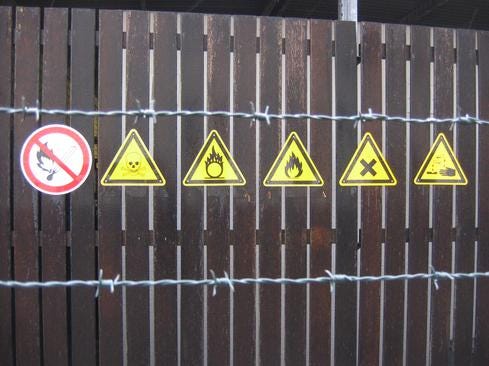Smuggled iPhones Not Hot In ChinaSmuggled iPhones Not Hot In China
Demand for iPhone 6 and 6 Plus devices smuggled into China slows dramatically, even as Apple prepares to start selling the devices there.


6 Things Not To Do With iPhone 6
6 Things Not To Do With iPhone 6 (Click image for larger view and slideshow.)
The Apple iPhone 6 has yet to go on sale officially in China, but that's not stopping smugglers from selling the phones on city streets and in back alleys. Black market sellers looking to make a quick buck, however, may have already exhausted early demand for the device -- which doesn't bode well for Apple.
"The gray market for the new iPhones has already dried up," reports The New York Times. The NYT estimates tens of thousands of iPhone 6 and 6 Plus handsets have been smuggled into China from Australia, Hong Kong, Singapore, and New York City. The black market is essentially flooded. One reseller has been forced to slash street prices from $1,960-$2,450 down to $1,060-$1,436. The iPhones netted wholesalers about $163 per handset, but with so many phones available and demand way down, black market operators may instead lose money on their iPhone stock.
How did the phones get there?
When the iPhone 6 and 6 Plus went on sale in the US on September 19, videographer Casey Neistat cased some of the lines at Apple stores in Manhattan and found a large number of Chinese customers waiting to buy the new devices. He asked them what they intended to do with their new phones, and many suggested the new phones were for themselves or for loved ones.
Neistat didn't believe them. He produced a six-minute video titled "Black Market Takes Over the iPhone 6 Lines" that has earned 2.8 million views so far. The video suggests that most of the Chinese buyers waiting in line to buy iPhones on launch day were there to make some cash by reselling the phones, and that many were there as a result of organized smuggling rings run by the Chinese mafia. (For the record, I'd estimate 90% of the people waiting in line to buy the iPhone 6 and 6 Plus on September 19 where I purchased mine in New Jersey were also Chinese.)
[iPhone 6: Dali Edition? Read Apple iPhone 6 Bendgate: Top 10 Tweets.]
Analysts disagree with Neistat's base assumption that a large criminal organization led to the lines witnessed in big cities on September 19. Linda Sui, an analyst at Strategy Analytics, told TIME, "They need money. Most of them are low-income people." In her view, many Chinese iPhone buyers were there to grab a device and turn it around to someone else who intended to ship it to China and resell it there. "In Chinatown there are small circles, so many people know each other," said Sui.
In the US, new iPhones couldn't be resold for more than about $1,000, leaving the original purchaser with a profit of $300 to $400 per device. The buyer then arranged for the phones to make their way to mainland China. Most of the devices entered via Hong Kong, according to the NYT, and were then sent via internal routes to large cities throughout the country.
When the iPhone 5s went on sale last year, it launched in China the same day it launched in other cities around the world. That put a damper on iPhone smugglers. This year, the iPhone's launch in China has been delayed as Apple has secured only one of two needed licenses to sell the device there. The company expects to secure the second license in time to commence sales this week, giving smugglers precious little time to recoup their investment before the phone can be purchased in stores. The slackened demand, however, is troubling.
iPhones were the hot phone to have in China several years ago, but in-country hardware makers have changed that story. Phone manufacturers such as Huawei, Xiaomi, and Meizu have stepped in with competitive handsets that cost far less. Though Apple sells tens of millions of iPhones in China, sales of Android-based phones from Chinese competitors number in the hundreds of millions. It doesn't help that the Chinese government has decreed US-made products undesirable.
Apple hasn't yet said when the iPhone 6 and iPhone 6 Plus will launch in China, but analysts will be watching closely to see just how well Apple does in the world's largest market for mobile phones.
If you just look at vendor financials, the enterprise storage business seems stuck in neutral. However, flat revenue numbers mask a scorching pace of technical innovation, ongoing double-digit capacity growth in enterprises, and dramatic changes in how and where businesses store data. Get the 2014 State of Storage report today. (Free registration required.)
About the Author
You May Also Like






